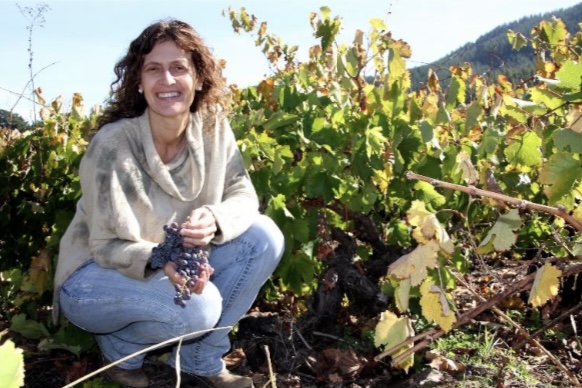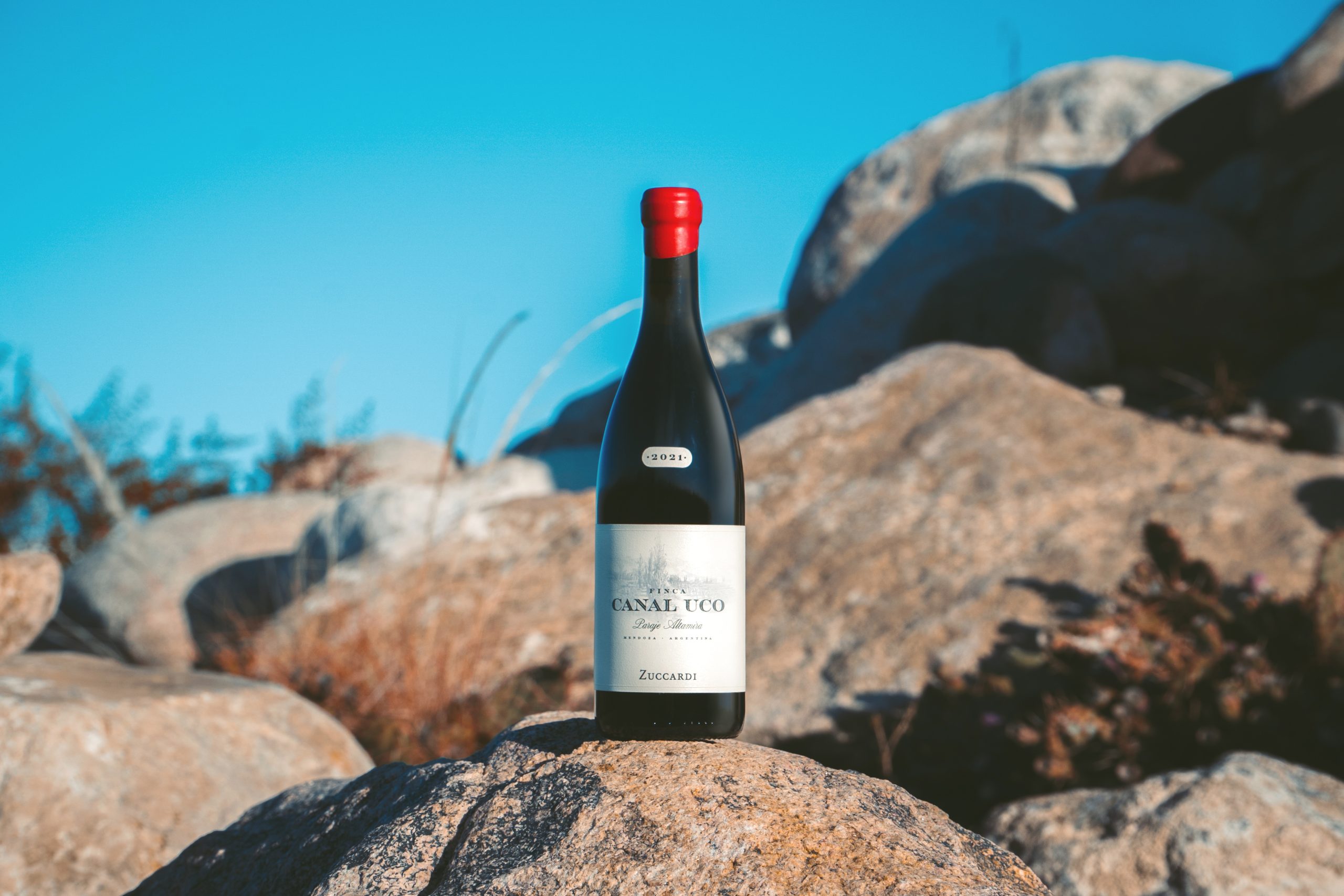New Carmen winemaker applauds ‘open-minded’ Chilean producer
New Viña Carmen winemaker Ana Maria Cumsille took the job on the proviso that she could continue her own wine brand in parallel. Here she tells db about juggling the two.

Ana Maria Cumsille is just two weeks into her new role as winemaker for Viña Carmen’s premium wines, and is about to leap headfirst into the busiest time of her life.
Part of Chile’s prestigious Santa Rita Estates, Viña Carmen has given the OK for Cumsille to continue working on her own personal wine brand, for which she is “a one-woman band”, alongside the role at Carmen, where she will be responsible for top wines including Carmen Gold and Carmen DO.
“When they called me to interview for the Carmen position after my predecessor Emily [Faulconer] left, they knew I had my own wine range. No one told me I had to stop making my wines. Carmen is very open-minded,” Cumsille exclusively tells the drinks business.
Her own project — called Ana Maria — sees her make wines using Pais, Cinsault, Carignan and Malbec, all from the Itata region of Chile, where growers dry-farm extremely old vines, usually owning just one or two hectares per grower. Cumsille started the project three years ago, following a stint of making wines for Itata producer Viña Cucha Cucha.
“I really work alone,” Cumsille says of her Ana Maria project. “I produce, sell, distribute and market my wines by myself.”
She describes herself as “an agronomist first and winemaker second, with a speciality in business”, and is currently seeking a distributor for her wines in the UK. In the US her wines retail for around US$30 per bottle.
“There is no conflict of interest because my wines don’t compete with Carmen wines,” Cumsille adds.
This sense of creative freedom is ultimately what drew her to the Carmen role, which she sees as combining all the best sub-strands of her winemaking history as Carmen, too, makes wines from Itata, including Carmen DO Lomo Seca Cinsault.
“I love experimenting and I think at Carmen they are very open to innovation and improving the wines,” she tells db.
“In the past, I spent 12 years working with [top Chilean Cabernet blend] Altair, and I love these kind of top wines. In Itata, on the other hand, it’s another reality, a totally different experience. All my history is all brought together – the top wines with the wild wines! It’s rare that the same winery makes both.”
Cumsille has also worked at Viña Indómita in Casablanca, overseeing the production of high-end white and red wines there, and at Los Vascos in Colchagua, as well as having spent time doing harvest work at First Growth Bordeaux producer Château Margaux.
Yet despite her considerable experience crafting top-tier wines, she says of her role at Carmen: “I’m brand new”, having only recently embarked on a tasting session of all Carmen’s 20 wines to better understand the portfolio.
Cumsille is yet to have a formal handover with previous Carmen winemaker Emily Faulconer, who has moved on to become technical director of Viñedos Familia Chadwick, but says that the two knew each other prior to Cumsille excepting the role.
“It’s a very small world and all the winemakers in Chile know each other,” she says. “We’ve spoken on the phone since I took the job but I’m looking forward to meeting up in person so she can explain to me a lot of things!”
Does Cumsille intend to expand Carmen’s range from Itata?
Partner Content
“Maybe in the future but right now, no. I have to look first, and learn about Carmen’s wines today. Maybe later I can add another wine from Itata but it’s a case of taking things step by step. First I need to understand the existing wines before I can make changes.”
Being so closely connected with Itata, which experienced devasting wild fires earlier this year, has Cumsille noticed signs of recovery in the region?
“When the fire arrived the vines didn’t die. The roots are still alive,” she says. “Even one month after the fires you could see the plants start to grow. You would not get that in another region.”
She is referring to the impressive depths to which the region’s old vine roots stretch, offering protection from natural disasters such as fire and excessive frost. However, Cumsille acknowledges that smoke taint may still be an issue in the region.
“Where I buy my grapes in Itata there was no fire, but there are still problems with smoke,” she says, going on to explain that she has treated her own wines with enzymes to separate any smoke molecules from the sugar in the wines.
“After the separation the enzymes become part of the sediment, which you can then get rid of.”
A love song to Cabernet
At Viña Carmen there has been some back-and-forth in recent years between Carmenere and Cabernet Sauvignon as a focus.
The producer played a pivotal role in Carmenere’s history, with the long-lost variety having been rediscovered in Carmen’s vineyard, and yet its Alto Jahuel site harbours some of the world’s most exceptional Cabernet.
Given Cumsille’s extensive experience with Cabernet following her work with Altair, will she be swayed more towards the latter?
“The focus will always be on both Cabernet and Carmenere, but I am more excited for Cabernet as it is one of my specialities, and Carmen has vineyards in Alto Jahuel, where some of the best Cabernet vines in the world are planted.”
Though the Cabernet vineyards at Viña Altair and Viña Carmen are both planted on the slopes of the Andes mountains, Altair’s site in Cachapoal largely comprises colluvial soils, while Carmen’s alluvial terraces close to the Maipo river produces “a more elegant style of Cabernet”, says Cumsille.
The contents of her own cellar at home may offer some clues as to the stylistic direction in which she may end up taking Carmen wines. She loves Albariño from Priorat, reds from Pomerol and Chilean espumante (sparkling) wine, though confesses that her collection is smaller than she would like.
“My problem is that I can’t wait. It’s difficult for me. I have to drink the wines,” she says.
Related news
Castel Group leadership coup escalates
For the twelfth day of Christmas...
Zuccardi Valle de Uco: textured, unique and revolutionary wines




